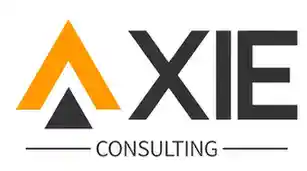
Navigating the EU AI Act: What UK Businesses Need to Know
The EU AI Act is here, and it’s changing the game for artificial intelligence regulation. Even though the UK is no longer part of the European Union, British businesses that operate in or supply to the EU market must pay attention. This landmark legislation introduces strict rules for AI systems, and non-compliance could mean hefty fines, lost business opportunities, or reputational damage.
But here’s the good news: understanding and adapting to the EU AI Act isn’t just about avoiding penalties—it’s an opportunity to build trust, enhance transparency, and future-proof your business. Let’s break down what this means for UK companies and how to stay ahead.
What Is the EU AI Act?
The EU AI Act is the world’s first comprehensive legal framework for artificial intelligence. It categorizes AI systems based on risk levels—minimal, limited, high, and unacceptable—and imposes stricter regulations on higher-risk applications. The goal? To ensure AI is safe, transparent, and respects fundamental rights.
For UK businesses, this means if you’re selling AI-powered products or services in the EU, you’ll need to comply—no exceptions. Even if your AI tools are used indirectly (say, a chatbot for customer service or an algorithm for hiring decisions), the Act applies.
Key Implications for UK Businesses
So, how does this affect you? Here are the major takeaways:
1. Risk Classification Matters
The Act divides AI into four risk categories:
- Unacceptable risk (banned outright, e.g., social scoring systems)
- High risk (strict regulations, e.g., medical diagnostics, recruitment AI)
- Limited risk (transparency requirements, e.g., chatbots)
- Minimal risk (no extra rules, e.g., spam filters)
If your AI falls into the high-risk category, you’ll need to meet rigorous standards around data quality, documentation, and human oversight.
2. Compliance Is Non-Negotiable
Ignoring the EU AI Act isn’t an option. Fines for violations can reach up to €30 million or 6% of global revenue—whichever is higher. Beyond financial penalties, non-compliance could mean losing access to the EU market entirely.
3. The UK May Follow Suit
While the UK isn’t bound by EU law post-Brexit, it’s likely to introduce similar AI regulations soon. Getting ahead now means less scrambling later.
How to Prepare: A Step-by-Step Guide
Ready to ensure your business stays compliant? Follow these steps:
1. Assess Your AI Systems
Start by auditing all AI tools your business uses or provides. Categorize them based on the EU’s risk framework. Ask:
- Does this AI impact people’s rights or safety?
- Is it used in sensitive areas like healthcare or law enforcement?
- Are there transparency requirements?
2. Update Data Practices
High-risk AI systems must use high-quality, unbiased data. Review your data collection and processing methods to ensure fairness and accuracy.
3. Implement Robust Documentation
The EU AI Act requires detailed records on how AI systems are developed and used. Maintain clear documentation on:
- Training data sources
- Algorithmic decision-making processes
- Risk mitigation strategies
4. Prioritize Transparency
Users should know when they’re interacting with AI. For example, if you use AI in hiring, candidates must be informed and given the right to challenge decisions.
5. Consider Certification
Standards like ISO 42001 (AI management systems) can help streamline compliance and demonstrate your commitment to ethical AI.
Turning Compliance into Competitive Advantage
Meeting the EU AI Act’s requirements isn’t just about avoiding fines—it’s a chance to stand out. Businesses that embrace ethical AI can:
- Build trust with customers and partners
- Enhance brand reputation as a responsible innovator
- Gain a first-mover advantage in regulated markets
For example, a fintech company using AI for loan approvals could highlight its fairness and transparency to attract more customers.
What’s Next for UK AI Regulation?
While the UK hasn’t yet finalized its AI laws, the direction is clear: stricter oversight is coming. The government’s pro-innovation approach suggests rules may be slightly lighter than the EU’s, but alignment in key areas is likely.
Staying informed and proactive now will make future transitions smoother.
Final Thoughts
The EU AI Act is a wake-up call for UK businesses. Whether you’re a startup using AI for customer insights or a large firm deploying automation, compliance is crucial. By taking action today—assessing risks, improving transparency, and adopting best practices—you’ll not only avoid penalties but also position your business as a leader in responsible AI.
Need help navigating these changes? Consider consulting legal and AI ethics experts to ensure your systems meet all requirements. The future of AI is regulated—make sure you’re ready.
